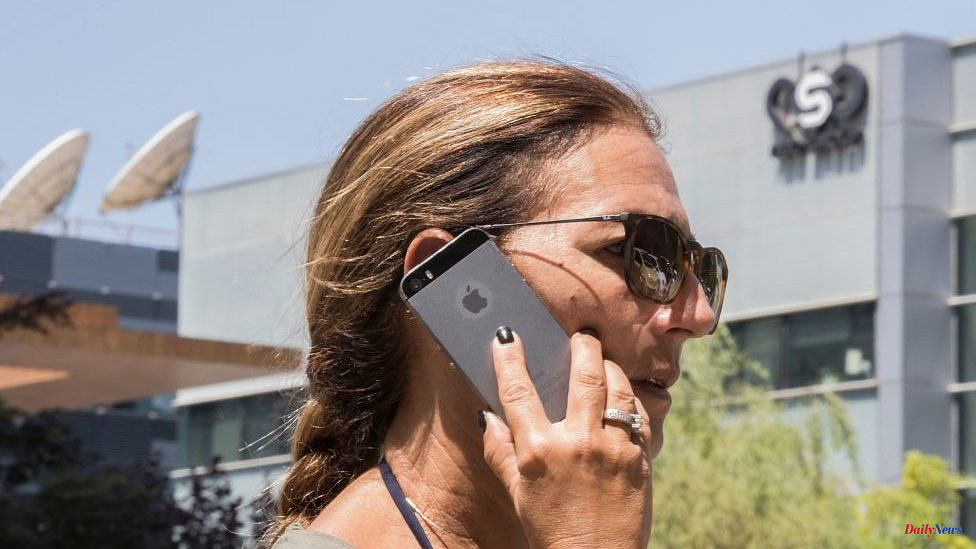Apple has unveiled a new security feature that protects high-risk users against spyware cyber-attacks.
Lockdown Mode will be made available with the next operating system for all company's iPhones, iPads, and Macs in the autumn.
This setting prevents certain functions from being used and stops unknown users calling.
After Apple devices belonging to activists, politicians, and journalists were infected by spyware, it is now official.
Apple is currently suing NSO Group in Israel for its spyware, alleging that it targeted victims in 150 countries using its powerful Pegasus spyware.
Software from the firm could infect both iPhones as well as Android devices. It allows operators to access messages, photos, emails, and records calls, and secretly activate microphones or cameras.
NSO Group claims its tools are designed to target terrorists, criminals, and insists that it supplies Pegasus only to law enforcement, intelligence and military agencies from countries with good human right records.
Apple was criticized by security and privacy experts last July for failing to protect users when the extent of the alleged surveillance was disclosed.
Pegasus had been secretly using the vulnerability for many years and it was quickly fixed by an emergency software update.
Lockdown Mode is now available by the company as an additional security feature that can protect devices against all known spyware.
The following protections will be provided by Lockdown Mode:
Lockdown Mode will be accessible to all users at launch in the device settings. However, Apple recommends that it only be activated if there is a risk of "mercenary spyware attacks". This could be a journalist, opposition leader, or any other person who may be under threat from repressive regimes.
"While the vast majority will not be the victims of highly targeted cyberattacks, we will work tirelessly for the few users that are," stated Ivan Krstic (Apple's head of security engineering & architecture).
Apple has announced that it will double its bounty threshold for ethical hackers who find security flaws within Lockdown Mode to $2m (PS1.7m).
A fund to help organisations expose spyware misuse will be funded by the US company.
Lori McGlinchey (director, technology and society, Ford Foundation) said that the global spyware trade targets journalists and human rights defenders and encourages violence. She will also oversee the grant.
NSO Group was placed on a US trade blacklist in November by officials. They claimed that the software "enabled foreign government to conduct transnational suppression, which is the practice where authoritarian governments target dissidents and journalists, as well as activists".
WhatsApp is also suing NSO Group, accusing it of using WhatsApp's messaging service to spread Pegasus.












